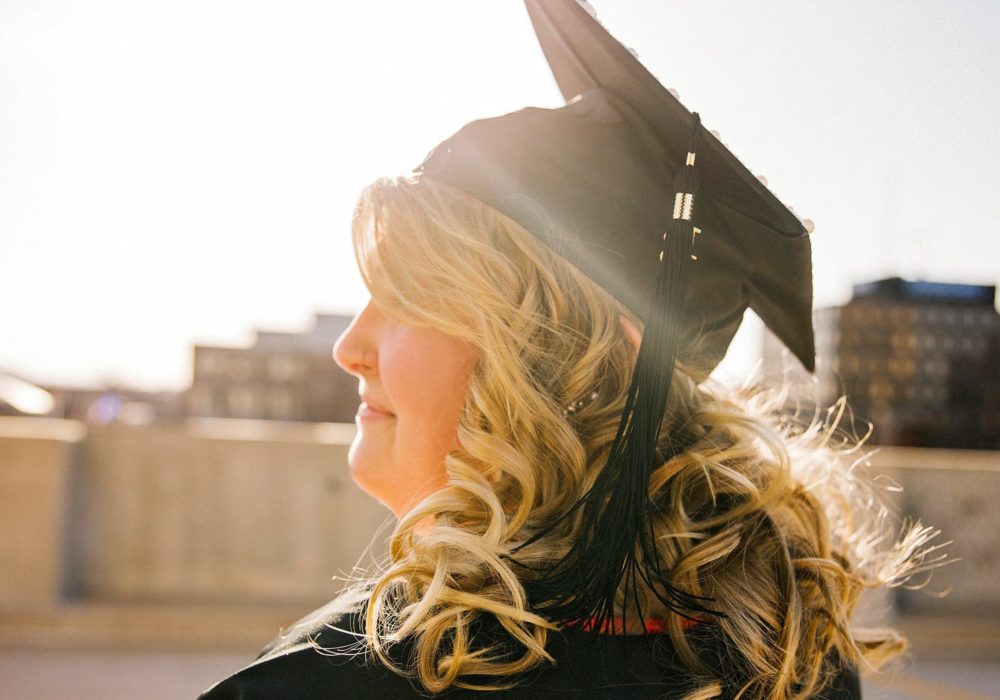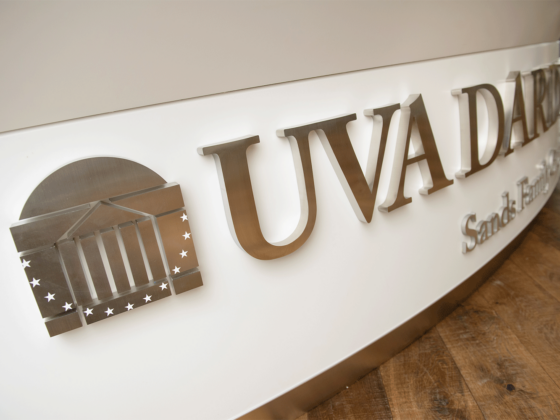Several Darden alumni who graduated during crises such as the dot-com bubble, September 11th and the Great Recession of 2008 recently shared their advice for Darden’s rising Second Years and newest graduates. As the Class of 2021 begins summer internships and the Class of 2020 enters a job market unlike any other seen before, alumni highlighted these tips for navigating career advancement in the new challenges and reality of the COVID-19 pandemic.
Understand that your career is a long term process, rather than immediate.
Shelley Reese (MBA ’08), Amazon principal product manager, saw the boutique consulting firm she joined after graduation reduce its staff from 100 people to nine. So she prepped her resume, began networking and pivoted to strategic consulting.
“Take the long view. It might not pan out that you get your dream job in the next one to two years. By no means should that stop you from positioning yourself for that dream job,” Reese says. “Use it as a springboard. You’ve taken two years to invest in yourself, so take the next two years to continue investing in yourself.”
Lean into the strength of the Darden community.
Sap Sinha (MBA ’08), Surgical Care Affiliates regional vice president, runs health care facilities in the epicenter of the COVID-19 pandemic in New York. Sinha says he’s seen it all. As an international student, he feared graduating without a work visa and with large debt.
“All of my career changes are because of Darden people,” Sinha says. “Interviewers select you because you have Darden on your resume. Graduating in 2008 as an international student, we leaned on people through no fault of ours. Don’t be afraid to go for positions that say they don’t hire international students. If there’s a Darden alum, they will find a way.”
If you return to a similar role you had before Darden, re-envision it as a step forward.
For Stephanie Bennett (MBA ’09), Northern Trust Wealth Management senior banking advisor, the “world was starting to crack and fall apart” during her summer 2008 internship at Lehman Brothers.
“It’s scary to not know what you’re going to do after you’ve worked really hard and had that path taken away,” says Bennett. She highlights Darden professors and the network as supportive in helping her classmates pivot careers despite layoffs and job offer rescinds.
“Some of my classmates had to go back to their same jobs in the same industry,” Bennett says. “10 years later, they’ve found their way into something awesome. Don’t think of it as a failure. The education you’ve received makes you a huge value add and you may be able to rise to the ranks faster than in a new industry.”
Apply what you’ve learned from the Darden case method and general management education.
Sarita Finnie (MBA ’01), Bayer vice president of integrated shopper marketing, graduated when the dot-come bubble burst in May 2001. September 11th came four months later. She found herself out of work until February 2002 and credits her ability to bounce back to qualities like grit and resourcefulness.
“I wasn’t held back by an uneven start. I attribute that to the quality of Darden graduates. This place steels you to be resilient and solve problems,” Finnie says. “It’s how you rise above the crowd, even if you pivot and start in a different direction.”
For Reese, the well-rounded education she received at Darden helped her successfully switch careers, despite the challenges posted by the Great Recession.
“It was resiliency and the general management education that allowed me to make that pivot. It was an important step forward in my career and in my ability to contribute to a broader enterprise,” Reese says. “Those are the reasons why we always hear that Darden is special.”
“You’re at Darden because you’re curious and because of the case method,” Sinha reminds students. “Don’t leave that curiosity at b-school. Learn about your industry and new industries more than the next person. Become knowledgeable about your company.”
Be open-minded and optimistic.
John McCann (MBA ’08), Barclays managing director, also interned at Lehman and began his first post-graduation job there. Though he felt fearful about moving to New York and paying off his loans, McCann sees himself as a natural optimist. On his first day, September 13, 2008, the company went bankrupt. McCann remembers he received email the night before from Connie English, then Alumni Career Services executive director. She asked McCann what she could do to help.
“Darden is all about problem solving, networking and teamwork. That’s ultimately what people want,” McCann says. “It’s not about who can build the best financial models or has the best business acumen. It’s about who can roll up their sleeves, get creative and hustle. Approach problems with confidence. Know that you have something special you can put to work and that distinguishes you as you move forward.”
Keep networking and researching new companies and industries.
Beth McCann (MBA ’08), married John after they met at Darden. As she now finishes her time away from work to focus on their children, McCann finds herself facing the same challenges as many Darden students. She is seeking a new job that speaks to her deep expertise with global retail leaders like Coach and Banana Republic.
“Harness the Darden network, even if there aren’t current openings. It gives you knowledge of what’s going on in the industry so you have background and contacts going into interviews,” she advises. Networking puts students at top of mind when job opportunities do surface.
“With summer internships going virtual and being shortened, you’ll need to have a story about what you did with your time,” says McCann. “Take an Excel class, volunteer, research. Make sure how you spend your time is purposeful.”
Remember that you’re not alone.
At Reese and Sinha’s ten-year Darden reunion in 2018, the Class of 2008 had the highest participation. Reese credits that closeness to one another and the Darden community to the difficult experience they shared together.
“Recognize that you are not alone. Your class will continue to be with you throughout the entirety of your career,” says Reese. “This unique experience will tie you together as a community and network. These are the people you’ll stay in touch with. Invest in each other. You’ll see that return 10,000-fold throughout the course of your career.”





